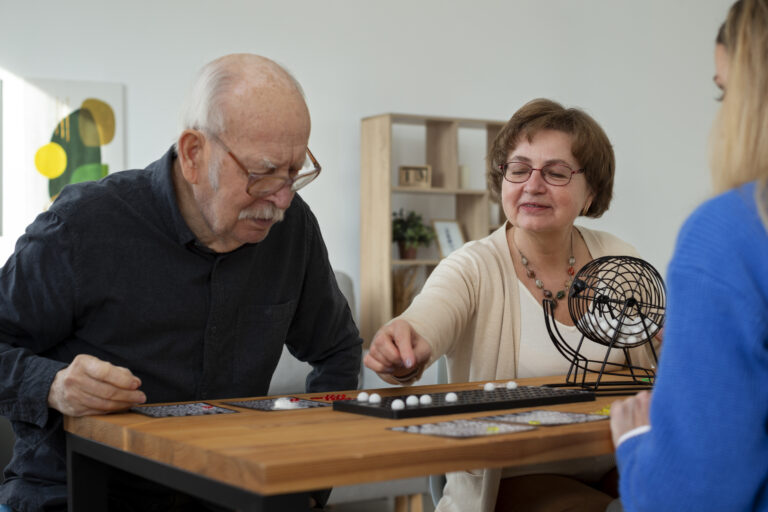How to Choose an Assisted Living Facility for a Loved One With Special Needs
If you have a special needs individual in your life, you may be wondering how to choose an assisted living facility for them. When people think of assisted living, they most often think of seniors. But when it comes to assisted living for the mentally ill, it’s not just about senior living.
Since mental illness can affect all ages, assisted living options are available for every adult, though they can be difficult to find. How do you know your loved one is ready for assisted living? What should you look for in a facility?
Read ahead to find out.
What Is Behavioral Assisted Living?
There are very few assisted living facilities that specialize in behavioral needs for all ages. Many places may only host young adults or seniors and not account for anything in-between.
The best-assisted living homes accept and can care for individuals with special needs, but you need to be careful to make sure it’s the right fit. Individual Care of Texas has dedicated homes for special needs individuals, providing extensive accommodations to ensure comfort.
How Can Assisted Living Help a Special Needs Individual?
Assisted living can help a special needs individual in a variety of ways. While not every individual can benefit from assisted living, many major illnesses, such as anxiety and phobias, eating disorders, and substance abuse disorder, can improve in these facilities.
Routine
People with anxiety, depression, or schizophrenia benefit greatly from predictability and routines. While life outside the facility might not support such a rigorous routine, assisted living facilities provide the structure they need.
Support
Social support and accountability can mitigate the symptoms of almost every mental health condition. As essentially communal living, assisted care facilities surround a resident with support.
Expertise
The best facilities have certified, trained, and equipped staff to deal with behavioral or mental health issues. Often, they’re more equipped to help than a family or home caregiver.
Signs Your Loved One Is Ready for Assisted Living
There are several signs that your loved one could benefit from entering a communal living situation.
Caregiver Burnout
Caring for your loved one yourself is extremely draining and, over time, burns out even the most loving and patient caregivers. Is your mental, physical, and financial health suffering from constantly taking care of the mentally ill individual? Assisted living could help you both.
Increased Need for Help
Is your loved one finding it harder to do daily tasks such as bathing, cooking, or dressing? Are their needs becoming more than you can handle? As their need for help increases, an assisted living facility becomes increasingly essential.
Decreased Mobility
One big sign your loved one needs extra help is a decrease in mobility. If moving is painful for them, or they’re becoming increasingly sedentary, they might need more help than you can give. Assisted living facilities can handle low-mobility individuals and, in many cases, can help them retain some of their mobility.
Isolation
Maybe your loved one can care for themself but feels increasingly lonely or isolated. Inherently communal, assisted living facilities are an excellent option for a loved one who needs support or community.
What to Consider
When you’re considering how to choose an assisted living facility, the following factors are most important.
Location
Does your loved one want to stay close to family? What environment do they prefer?
While location largely depends on your loved one’s preferences, consider how close the facility is to other healthcare essentials. The individual may want to live in a large country manor, but might they need access to other services?
Size
While the average assisted living facility has 33 beds, they vary widely in size. The smallest places have as little as four beds, while the largest could have over 100.
Larger facilities usually have a wider variety of services. However, that doesn’t mean they have a higher level of care. In addition to the number of beds, consider the size of the staff.
A lower ratio of staff to beds means the caregivers may overwork themselves. Patients per staff member is a better indicator of care than the number of beds in a facility.
Services
The needs of your loved one dictate the type of care services you should look for. Some loved ones need help with only a few areas of living, like dining, room cleaning, and occasional check-ins. For them, a generalized assisted living facility should work.
Others, like Alzheimer’s patients, need specialized or individualized services. Make sure the facility you choose provides the services your loved one needs both short and long-term.
Cost
If you don’t have long-term care insurance, assisted living comes with a lot of expenses. Your monthly budget determines both the type of facility your loved one can afford and the size of the room they rent.
Facilities differ in their payment process and requirements. Before committing to a home, make sure you understand your health insurance and ensure the facility has transparent and understandable financial policies.
Culture
Is the staff friendly? Is the entire building clean? Is the facility safe and secure, or can anyone just walk in? When you entrust the care of your loved one to others, you want to ensure their happiness and safety.
Even if the facility checks off all your other boxes, take extra care to ensure your loved one likes the culture and atmosphere. Make sure the home doesn’t cut corners when it comes to safety or cleanliness.
Emergency Procedures
Take time to talk with a staff member about the facility’s emergency procedures. Will they allow you to withdraw them on short notice? How do they handle protecting the residents in the event of a fire or tornado?
Individual Care of Texas Is Here to Help
Figuring out how to choose an assisted living facility for your loved one with mental illness is difficult. Individual Care of Texas and Highland Assisted Living are both here to help. To start the process, call us at (325) 675-5100 or (903) 356-4526.






